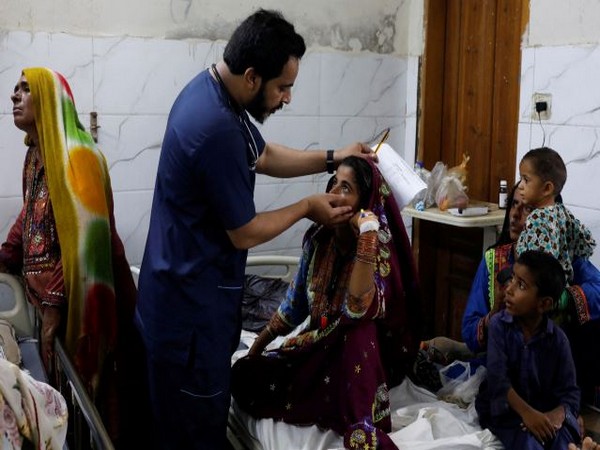The sudden surge in dengue cases was registered in the national capital when 272 fresh cases were reported during the past week.
While 3,595 cases of dengue have been reported this year, not a single dengue death was reported this year.
So far this year, 236 cases of Malaria have been reported, and six cases have come to the fore during the last week.
Not a single case of Chikungunya has been reported during the last week, however, 44 cases of Chikungunya have been reported so far this year.
Earlier on November 24, Uttar Pradesh Deputy Chief Minister Brajesh Pathak had instructed the team of doctors and paramedical staff to remain ready for 24 hours in the hospital to deal with viral, dengue, chikungunya and other fevers.
He had further instructed that the medicines should be made available to OPD and admitted patients from the hospital itself and the Officers should keep periodically checking the stock in main drug stores, said a government statement.
As per the statement, Deputy Chief Minister Brijesh Pathak directed the CMOs and CMs across the state to provide better treatment to the patients.
“The medicines of the hospital should be provided to the patients. For this, make arrangements for adequate antibiotics and medicines used in the treatment of fever in the hospital. Doctors prescribe the medicines available in the hospital to the patients,” he had said.
The UP Deputy CM also asked the medical teams to lay focus on stocking up of medicines for heart, sugar and blood pressure, so that there is no shortage of medicines in emergencies.
“The medicines for at least 15 days or more should be made available to the patients. So that the patients do not have to visit the hospital frequently. Patients find it inconvenient to come to the hospital in winter. Take special care of the patient’s health in cold,” he said.
He further said that there is no shortage of medicines in government hospitals.
“UP Medical Supplies Corporation is providing medicines to all the hospitals as per their requirement. At the same time, the corporation has been asked to provide a stock of medicines for four to six months according to the requirement of the hospital,” he had said.
The UP Deputy CM also instructed on saving medicines from getting expired.
‘Medicines should have an expiry date of one to two years. So that due to the close expiry, there is a risk of spoilage of medicines. Not only this, the hospitals where the expiry date of medicines is near, they can send medicines to other hospitals to avoid spoilage of medicines,” he had added. (ANI)
Read More: https://lokmarg.com/

